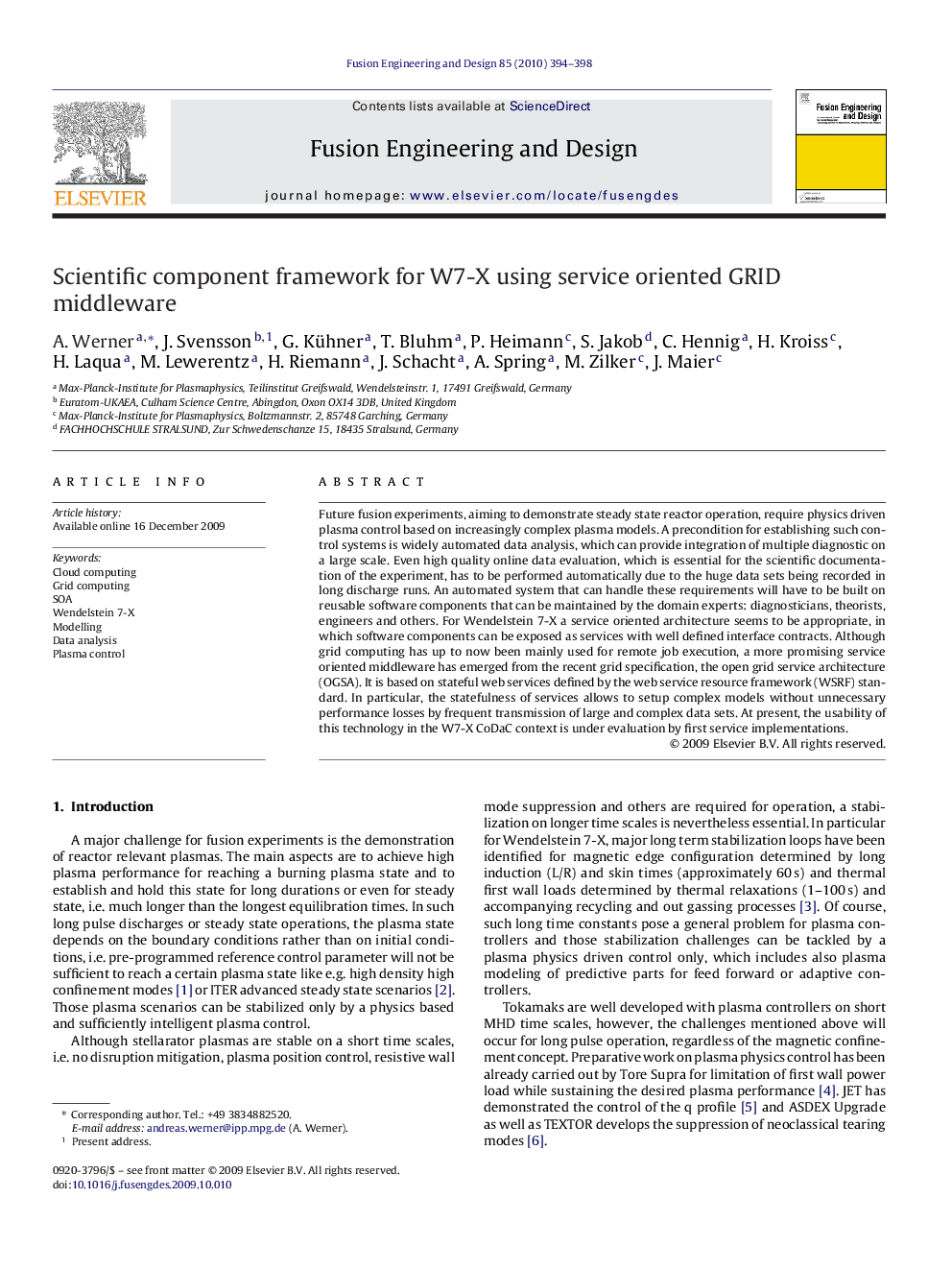| Article ID | Journal | Published Year | Pages | File Type |
|---|---|---|---|---|
| 272332 | Fusion Engineering and Design | 2010 | 5 Pages |
Future fusion experiments, aiming to demonstrate steady state reactor operation, require physics driven plasma control based on increasingly complex plasma models. A precondition for establishing such control systems is widely automated data analysis, which can provide integration of multiple diagnostic on a large scale. Even high quality online data evaluation, which is essential for the scientific documentation of the experiment, has to be performed automatically due to the huge data sets being recorded in long discharge runs. An automated system that can handle these requirements will have to be built on reusable software components that can be maintained by the domain experts: diagnosticians, theorists, engineers and others. For Wendelstein 7-X a service oriented architecture seems to be appropriate, in which software components can be exposed as services with well defined interface contracts. Although grid computing has up to now been mainly used for remote job execution, a more promising service oriented middleware has emerged from the recent grid specification, the open grid service architecture (OGSA). It is based on stateful web services defined by the web service resource framework (WSRF) standard. In particular, the statefulness of services allows to setup complex models without unnecessary performance losses by frequent transmission of large and complex data sets. At present, the usability of this technology in the W7-X CoDaC context is under evaluation by first service implementations.
